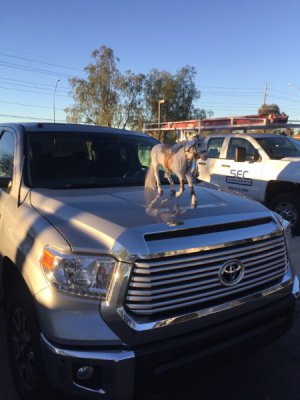G
Grumpy Gator
Forum Guest
Register Today
The challenge is this, please explain the best simple definition of :
Horsepower = Newton Meters. And how that relates to torque.
Please keep it simple.
Jame's Watt came up with "Horse Power" as a marketing tool to sell his improved steam-powered engines more than 100 years ago.
This being an educational forum my thought is we can do better.
**G**
EDIT ...My question was not worded right. Thank You Rzbill for pointing that out.
Horsepower = Newton Meters. And how that relates to torque.
Please keep it simple.
Jame's Watt came up with "Horse Power" as a marketing tool to sell his improved steam-powered engines more than 100 years ago.
This being an educational forum my thought is we can do better.
**G**
EDIT ...My question was not worded right. Thank You Rzbill for pointing that out.
Last edited by a moderator:


